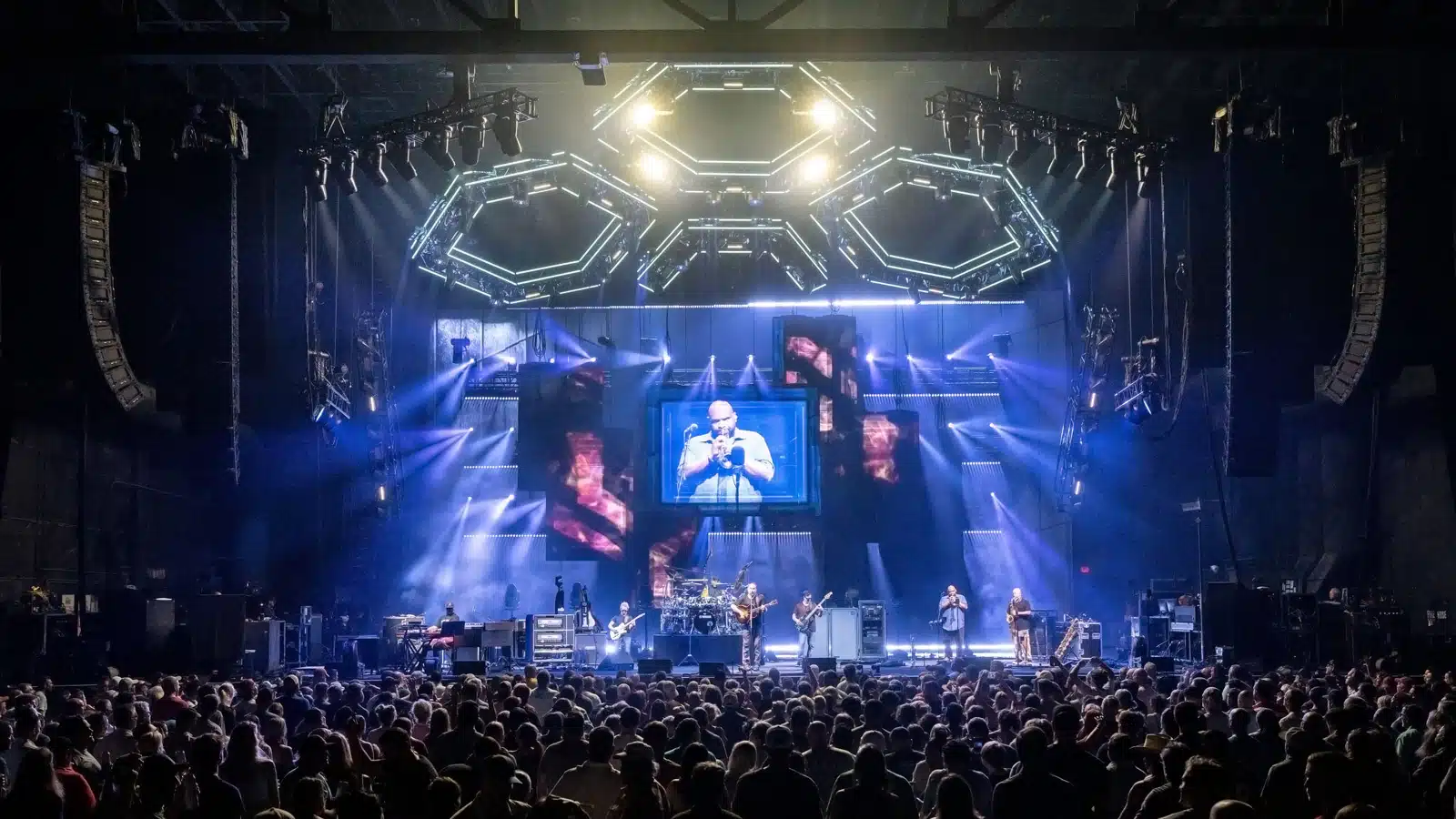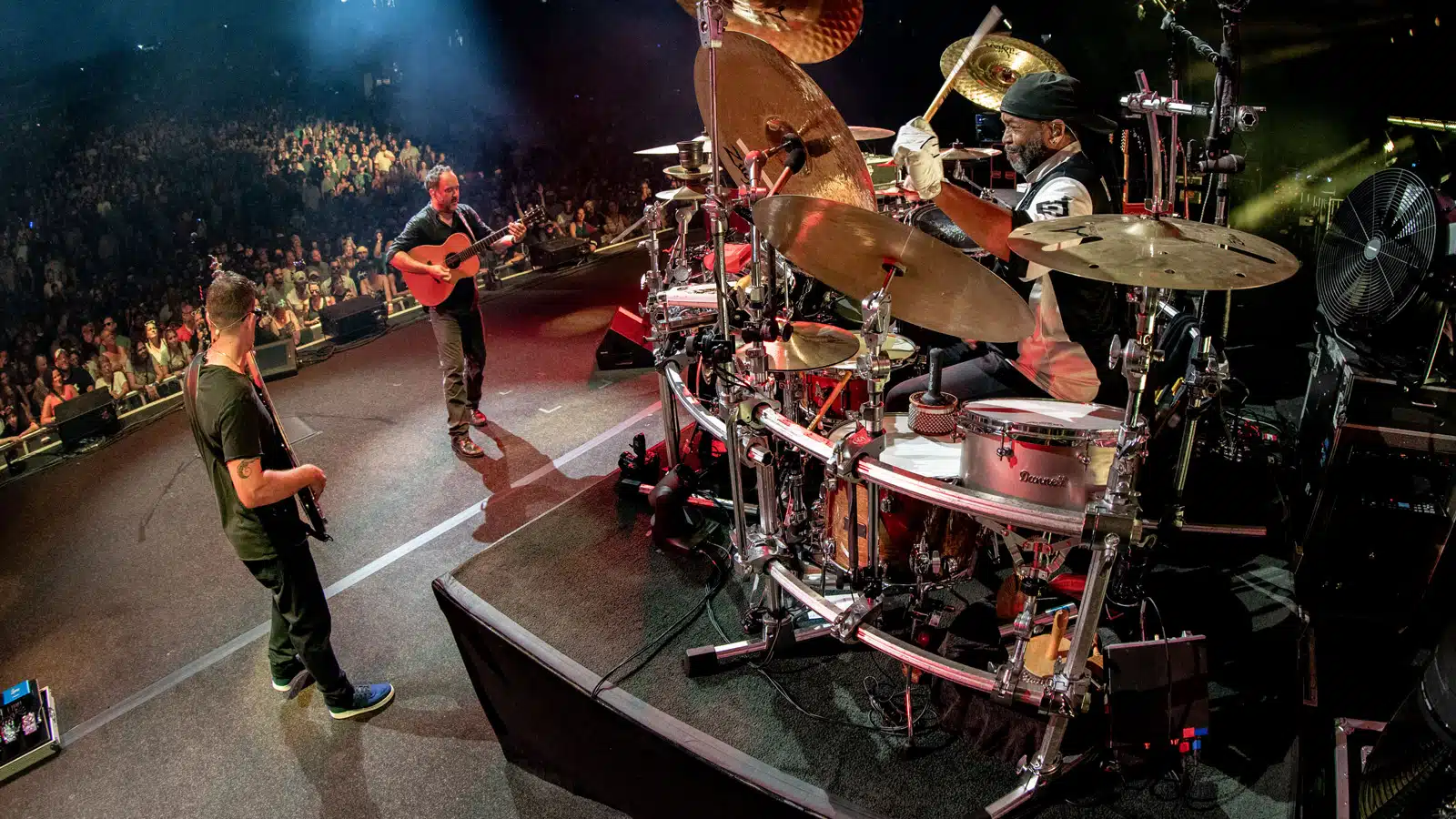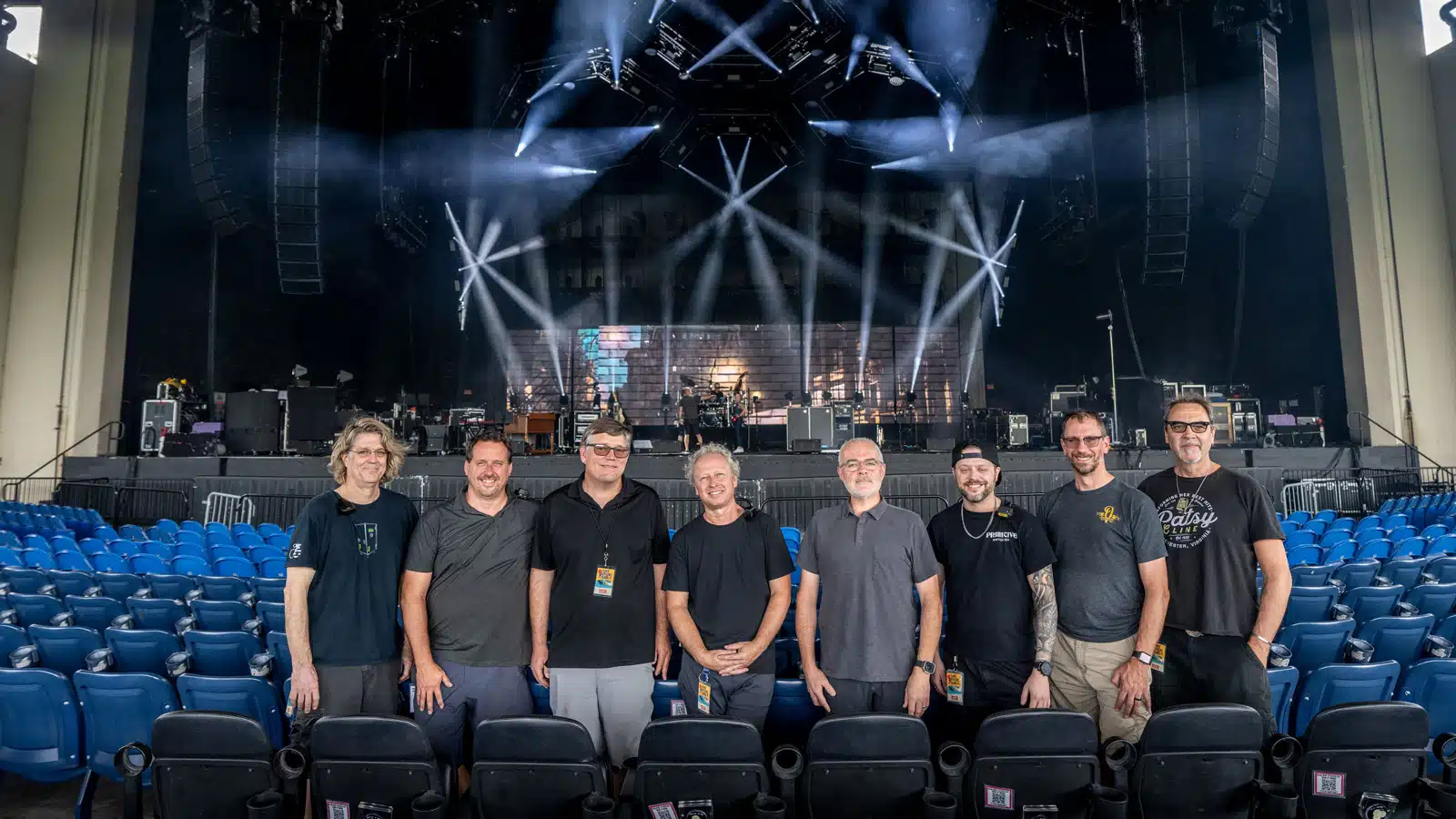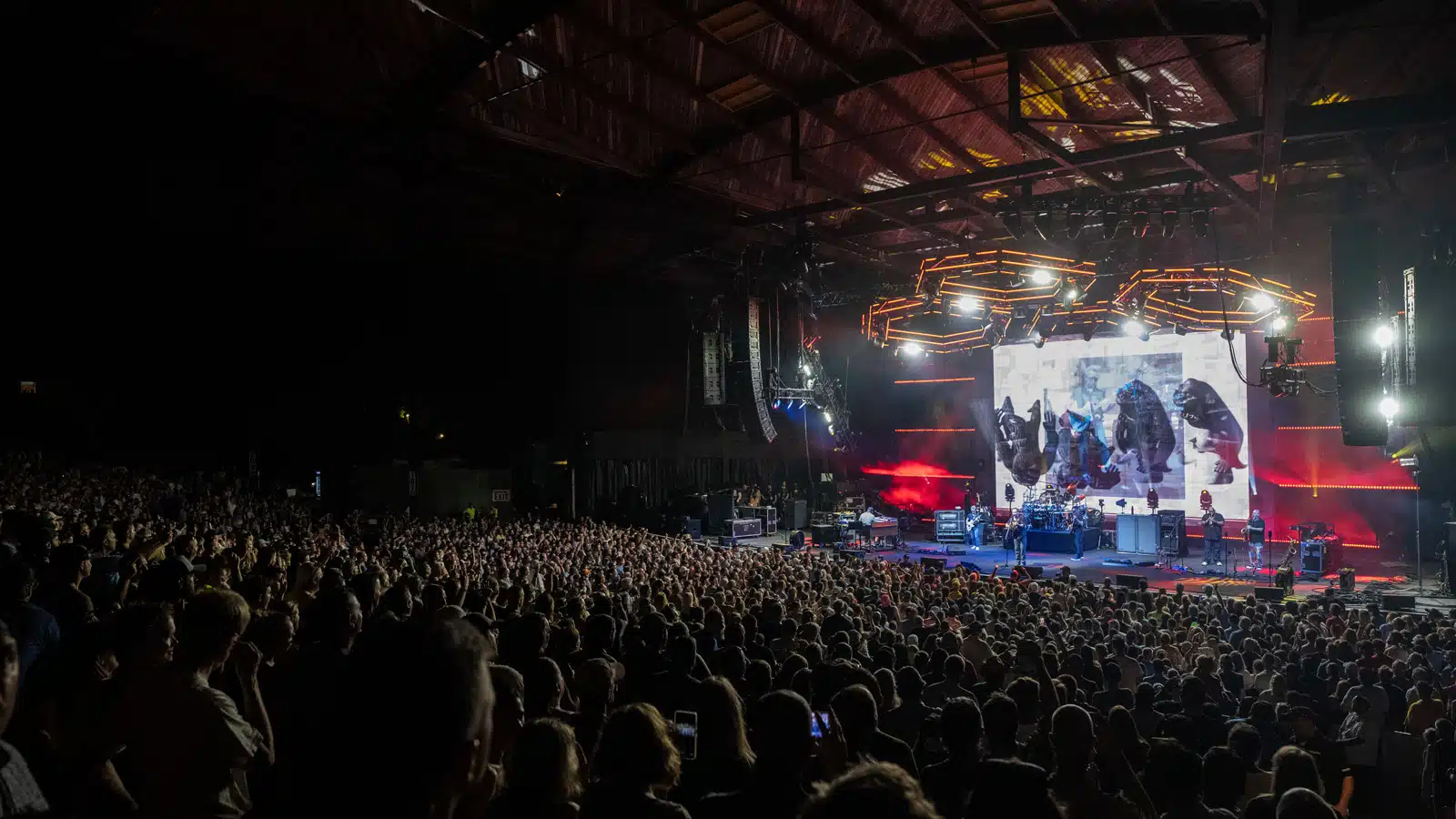Compared to previous systems, you don’t have to EQ everything to get [the PANTHER system] to what you want it to sound like. I just can get to that end point a lot faster and a lot more consistently, from show to show.”
Tom LyonSenior Systems Engineer, UltraSound
Dave Matthews Band (DMB) brings its eclectic fusion of rock, jazz, and folk to sheds and festivals across the US this summer, carrying a Meyer Sound PANTHER system provided by UltraSound, LLC. The 32-date tour marks nearly three decades of collaboration between DMB, Meyer Sound, and UltraSound, a relationship that began with the band’s first headline tour in 1995.
DMB is out with a PANTHER system for the third time; the current configuration is anchored by 16 PANTHER large-format linear array loudspeakers per side, supported by 14 LYON out fills per side, 8 LEOPARD front fills on the downstage edge, and CQ-1 and JM1-P loudspeaker fills as needed, with ten 1100-LFC low-frequency control elements per side hung behind mains in a gradient array.
PANTHER offers numerous advantages, agrees UltraSound Senior Systems Engineer Tom Lyon, who has been working with DMB since 2000 and has been mixing the band since 2018. “Number one, it’s very lightweight, so I can hang more of it in some of these very weight-conscious venues that have a weight limit. And the design of the horn is very consistent over its coverage pattern, and the edges of the pattern sound really good,” he explains.
UltraSound Systems Engineer Paul “Pablo” White adds that working with a self-powered system streamlines deployment. “I like having the amplifier in the speaker; I think it gives Meyer Sound more control over its product,” he explains. “You’ve removed the variable of a different amplifier vendor and tuning, which takes a factor out of deployment. And with PANTHER, the amp is so light, and the box is so light, it’s competitive with boxes that aren’t self-powered.”
Lyon says PANTHER makes mixing easier because “it takes a lot less work to get to the curve that I like to have. Compared to previous systems, you don’t have to EQ everything to get it to what you want it to sound like. I just can get to that end point a lot faster and a lot more consistently, from show to show.
“It’s also consistent from front to back too,” he adds. “It’s just a step forward in engineering design.”
Although production is relatively consistent, some historic sheds have weight limits or acoustic attributes that call for creative deployments. The Blossom Amphitheater in Cuyahoga Falls, OH, is one example. “It’s this big orchestral wooden shell. The minute you put any amplified music in it, it gets really loud, really quick,” says Lyon. “And since the shell was designed in the late ’60s and is all wood, if you add a lot of sub-harmonic frequencies, it rattles and shakes. I have to try to cancel out as much as I can behind the PA so I can get some kick drum punch in front of the PA.”
For the seasoned UltraSound crew, years of planning, and transitioning from Meyer Sound MAPP XT to MAPP 3D, have streamlined production. “Since we’ve been doing the same venues for the past 20-something years, I’ve got a library of predictions I’ve been able to hand off to my system engineer, and we just keep on basically building on what we’ve learned,” says Lyon.
“With MAPP, what I’m putting in is what’s coming out,” White adds. “It’s amazing how accurate it is. It can be your greatest tool before you even walk into a venue. I’m interested in getting these old drawings as accurate as possible; every year we break the seating sections up more and add more information, to get a little more accurate.”
White continually programs in venue surface materials and other variables that impact sound. “Things like ceilings, where I want to know, how much 4k is coming off that roof? Or, we’re hitting a couple of venues where the side screens are really way downstage, where the side hang can potentially blow into the back of the side video screen. So I’m starting to draw these, I call them venue features, in.”
Ultimately, Lyon says that the Meyer Sound system’s precision, transparency, and predictability help him dial in the perfect mix. “It’s almost like they’re removing the speaker itself from the equation, to make it so that what the output of your desk is, is what the audience hears,” he says. “That gives you the tools to make the sound as good as it can be.”






